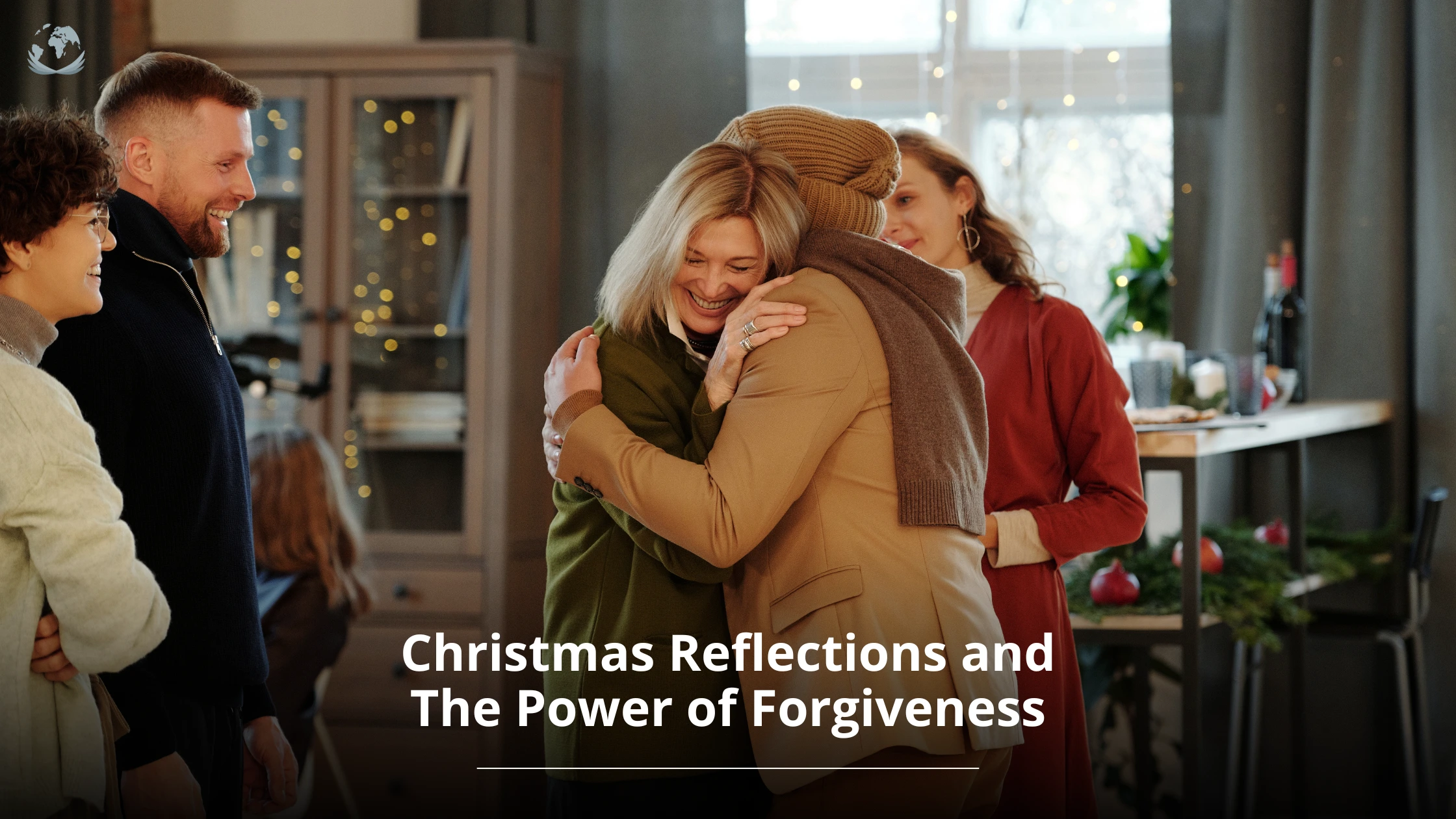Christmas Reflections and The Power of Good Will: Historical Examples of Reconciliation and Healing and Peace
We are fully in the Christmas season. Christmas is the season of peace. It is the season marking the Christian belief that God gave his only son to the world to save mankind and to teach the redeeming nature of forgiveness, peace and the greatest of gifts, that of love. Christmas music is in all the stores and air waves. Christmas decorations are everywhere. People are buying gifts, planning parties and Christmas dinners. But in so many ways, to many, many people, the true gift of Christmas seems an afterthought, as though it has no relevance. Peace, forgiveness and love seem in short supply. Hate weighs heavily in the air. In the U.S. and other countries as well, promises of rounding up immigrants and deportations are freshly emboldened. Social divides, antisemitism and the institutionalized racism of Jim Crow history, fomented so pervasively in the U.S., and for a time only advanced in hushed circles are resurfacing. Wars abound. And the song from Henry Wadsworth Longfellow’s poem, “Christmas Bells”, written on Christmas Day, 1863, has been playing in my head, the one verse, so poignant and so timely:
And in despair I bowed my head;
"There is no peace on earth," I said;
"For hate is strong,
And mocks the song
Of peace on earth, good-will to men!”
Is there no peace, no good will? I have no answer. We have seen the triumph of forgiveness, of love and good will at various times in history. Remember the healing nature of the campaign of Truth and Reconciliation at the end of the Apartheid regime in South Africa and again at the end of the slaughter in Rwanda? Without forgiveness, without Truth and Reconciliation, the horrific wounds inflicted in each of those countries would have been crippling. Forgiveness allowed people to move forward, not without pain, but with the recognition and dignity of their truth and pain. History allows us to look back and see where we have stumbled and where we have risen as a people to be more noble and move forward with the larger goals of society built on good will, and the belief that love of our fellow humans raises all boats.
We can look to the end of each of the World Wars. The end of the first left Germany punished with devastating poverty and inflation leading its people to follow a madman into World War II. At the end of World War II, we partnered with Germany and Japan to rebuild those countries. We learned the painful lesson that destroying an adversary foments deep hatred and despair. We learned that hatred and decimating a society comes at a steep price. We paid dearly to learn that lesson. History has so much to teach us in order that we don’t repeat our costly mistakes. But, now it seems that we have forgotten.
In the U.S., over 160 years ago, we fought a four year devastating Civil War that pit brother against brother and killed thousands of us, essentially over the right to own human beings. The post Civil War, Jim Crow era efforts to institutionalize racism, to preserve the degradation and dehumanization of African Americans, continues to cause untold heartache and degradation to our nation as a whole. Dismay at the Jim Crow era hatred I witnessed growing up, is in part responsible for the birth of History Chip. History Chip is our effort to undo racism and hatred and build good will to all people. History Chip is built to ennoble the voices of all people and their contributions to history. So, here at History Chip, we hold onto the hope of the last few lines of Longfellow’s poem written on that Christmas day in the midst of the Civil War:
“The Wrong shall fail,
The Right prevail,
With peace on earth, good-will to men.”
And this is why we ask you to share your stories. Your stories testify to your truth. They testify to your dignity. Our stories heal as they proclaim every human’s right to occupy their place on this earth. Your stories don’t have to be about great things like truth and reconciliation. Your stories don’t have to be about forgiveness or love or humanity. By the very nature of testifying to your existence, your stories are stories that heal. Your stories are healing stories, simply because you put them out there - as though you are taking the hand of all the other people who also tell their stories. So, this Christmas season, this holiday season of whatever faith you hold dear, share a story here at History Chip. Speak of your own place on this planet. Speak of your right to live your life with your own beauty, your own struggles, your own vision, no matter your color, your faith, what you do, where you live, who you love. History Chip is here to embrace and honor your place on this earth. We wish you peace on earth and good will to all.
Christmas Bells
Henry Wadsworth Longfellow
1807 – 1882
I heard the bells on Christmas Day
Their old, familiar carols play,
And wild and sweet
The words repeat
Of peace on earth, good-will to men!
And thought how, as the day had come,
The belfries of all Christendom
Had rolled along
The unbroken song
Of peace on earth, good-will to men!
Till ringing, singing on its way,
The world revolved from night to day,
A voice, a chime,
A chant sublime
Of peace on earth, good-will to men!
Then from each black, accursed mouth
The cannon thundered in the South,
And with the sound
The carols drowned
Of peace on earth, good-will to men!
It was as if an earthquake rent
The hearth-stones of a continent,
And made forlorn
The households born
Of peace on earth, good-will to men!
And in despair I bowed my head;
"There is no peace on earth," I said;
"For hate is strong,
And mocks the song
Of peace on earth, good-will to men!"
Then pealed the bells more loud and deep:
"God is not dead, nor doth He sleep;
The Wrong shall fail,
The Right prevail,
With peace on earth, good-will to men."
This poem is in the public domain.
Jean McGavin
Founder, History Chip

